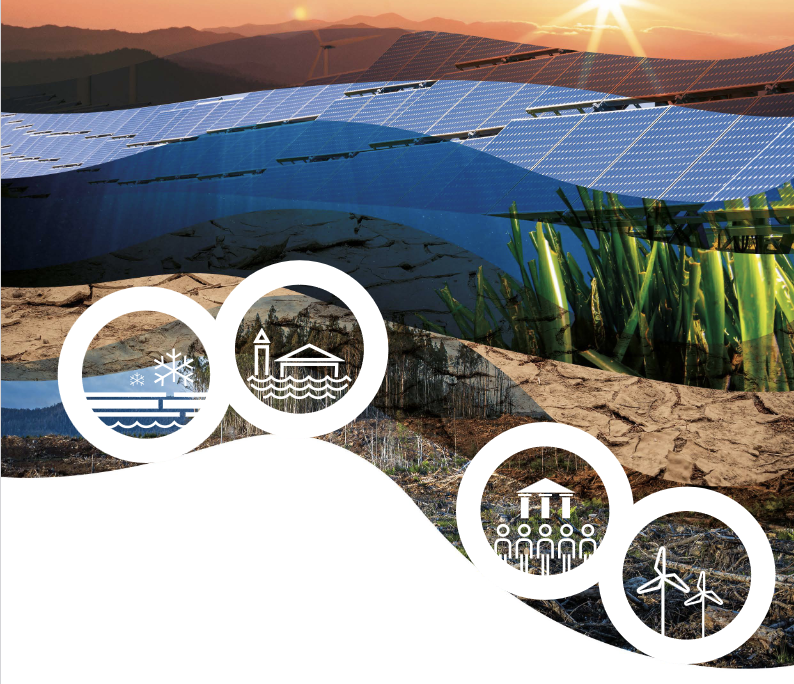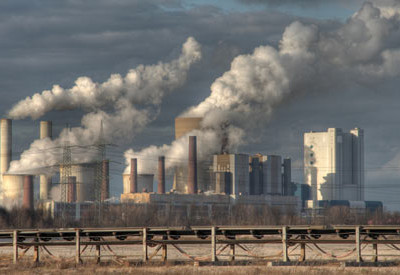How much should we worry about climate tipping points?
A new report suggests climate tipping events may be inevitable, and urges transformative approaches to climate policy
It’s hard to keep up with the deluge of climate news around COP28. Climate damages are growing. Carbon budgets are running out. Temperature records are being re-written. Despite new pledges, climate action remains hugely insufficient and grossly unfair. And the world may be unable to avoid passing critical climate tipping points.
That last comes from a new review of the state of Global Tipping Points, produced by more than 200 scholars, coordinated from the University of Exeter, UK, and funded by the Bezos Earth Fund. Full disclosure: I was one of those scholars, contributing to the section of the report on governance of tipping elements.

Danger ahead: climate tipping points
The report concludes that, with global warming on course to breach 1.5°C, at least five Earth system tipping points are likely to be triggered. These include the collapse of major ice sheets and widespread mortality of warm-water coral reefs. As Earth system tipping points multiply, the report warns, there is a risk of economic and social crises cascading through the inter-connected, globalised world. And, without urgent action, societies will be “overwhelmed as the natural world comes apart”.
So, what sort of urgent action does this mean? In particular, should we be preparing to deploy climate geoengineering technologies? Could solar geoengineering buy time by suppressing temperatures below levels that would trigger tipping events?
Is it time to engineer the climate?
The assessment process carefully considered the case for potential geoengineering responses. And the report does endorse continuing well-governed research. But it argues that the deep ethical, technical and political uncertainties and known risks surrounding geoengineering rule it out, at least for now. It “should not be considered technically available to use safely and swiftly within the coming decades.” It is also clear that solar geoengineering could never be a substitute for preventive tipping point mitigation. Effective preventive action involves both cutting emissions and tackling other drivers of tipping events, such as deforestation or overfishing.
The report recommends that governance needs to “guard against counterproductive reactions to tipping point threats, such as … misguided reliance on speculative solar geoengineering.” To ensure this, it suggests three measures. A ban on commercial deployment of solar geoengineering. A moratorium on any other deployment. And a multilateral regime to regulate research and experimentation.
The report also notes explorations of local (geo)engineering responses that might be of value at the scale of specific tipping elements, such as reef cooling by cloud brightening, or draining glacial meltwater to slow glacier advance. It finds that all of these techniques are controversial and speculative, with multiple uncertainties regarding their technical feasibility, efficacy, and side-effects, and involve serious governance challenges, including how to avoid them providing excuses for delays to mitigation.
Urgent prevention and resilience building
Instead the report focuses on two strands of response: accelerating preventive action, and building resilience to the likely impacts of climate tipping events. In both cases the recommendations go well beyond conventional prescriptions for mitigation and adaptation respectively.
The central recommendation for accelerated mitigation is to push to phase out both fossil fuel and land-use emissions well before 2050. This might sound implausible, and it surely won’t be easy. But the report also highlights the potential for triggering positive ‘tipping points’ or social and economic transformation. This demands a strategic combination of legal regulations, technological innovations and cultural transmission of new behavioural norms.
Fair and sustainable forms of carbon removal could contribute to prevention of tipping events. But the report warns that removals capacity is likely to prove limited, and should be dedicated to dealing with excess atmospheric CO2 rather than balancing otherwise abateable residual emissions.
The real takeaway is that if we want to avoid a wild ride through climate tipping points, we have to abandon the presumption that we can incrementally transition with market measures and better technology. Instead we have to get serious about social, cultural and political transformation.
Much the same message holds in terms of adaptation and resilience. We have to get serious about adaptation finance and ‘loss and damage’ reparations. And we can’t rely on conventional models of development to increase wealth and resilience in vulnerable populations. We have to transform the economic systems that create and rely on precarity and vulnerability. The report also recommends efforts to prevent or slow tipping cascades by building natural system resilience, for example by protecting and restoring natural habitats. And it highlights the need to enable rather than resist migration as a key tool to reduce vulnerability.
Emergency democracy
In other words, tipping point risks are a real threat to human security. They merit ‘exceptional responses.’ That doesn’t mean giving emergency powers to militaries, presidents or scientists. It does mean building tipping point analysis into climate policy mechanisms such as the global stocktake, and nationally determined contributions. And, critically, it means urgently finding ways to turn public support for fair and just climate policies into action. With democratic endorsement, governments could pursue radical social and economic transformations that can simultaneously reduce the risk of transgressing tipping points and reduce vulnerability to their impacts. And strengthening democracy in this way would also provide a platform for real public participation in future decisions about geoengineering, if temperature rises cannot be otherwise curtailed.
Reader Comments
One Reply to “How much should we worry about climate tipping points?”
Comments are closed.







I agree on all climate messages.